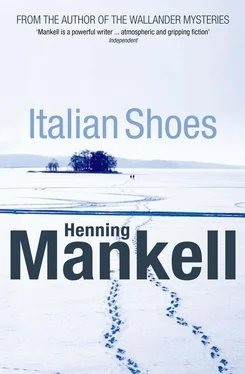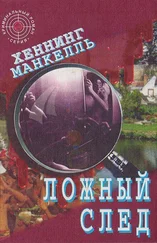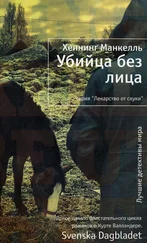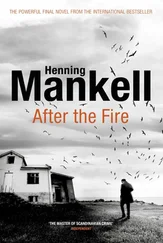They say that the oaks on these islands were planted by the state at the beginning of the nineteenth century, so that there would be ample timber to make the warships being built in nearby Karlskrona. I remember lightning striking one of the trees when I was a child, and my grandfather sawing down what remained of the trunk. It had been planted in 1802. Grandfather told me that was in the days of Napoleon. I had no idea who Napoleon was at the time, but I realised that it was a very long time ago. Those annual rings had dogged me throughout my life. Beethoven was alive when that oak was still a sapling. The tree was in its prime when my father was born.
As so often out here in the archipelago, summer came gradually, but you could never be certain that it was here to stay. My feeling of loneliness usually decreased as it grew warmer. But that was not the case this year. I just sat there with my anthill, a sharp sword and Sima’s half-empty suitcase.
I often spoke to Agnes on the telephone during this period. She told me that the funeral had taken place in Mogata church. Apart from Agnes and the two girls who lived with her — the ones I had met: Miranda and Aida — the only other person to attend was a very old man who claimed to be a distant relative of Sima’s. He had arrived by taxi, and seemed so frail that Agnes was afraid he would drop dead at any moment. She had not managed to establish just how he was related to Sima. Perhaps he had mistaken her for somebody else? When she showed him a photograph of Sima, he hadn’t been at all sure that he recognised her.
But so what? Agnes had said. The church ought to have been full of people bidding farewell to this young person who had never had an opportunity to discover herself, or explore the world.
The coffin had been adorned with a spray of red roses. A woman from the parish, accompanied by a restless young boy in the organ loft, sang a couple of hymns; Agnes said a few words, and she had asked the vicar not to go on unnecessarily about a conciliatory and omniscient God.
When I heard that the grave would only bear a number, I offered to pay for a headstone. Jansson later delivered a letter from Agnes with a sketch of the stone, how she thought it ought to look. Above Sima’s name and dates, she had drawn a rose.
I rang her the same evening and asked if it shouldn’t be a samurai sword instead. She understood my way of thinking, and said she had considered it herself.
‘But it would cause an uproar,’ she said.
‘What shall I do with her belongings? The sword and the suitcase?’
‘What’s in the suitcase?’
‘Underclothes. A pair of trousers and a jumper. A scruffy map of the Baltic and the Gulf of Finland.’
‘I’ll come and collect it. I’d like to see your house. And above all, I want to see the room where it happened.’
‘I’ve already said that I ought to have gone down to her. I shall always regret not having done so.’
‘I’m not accusing you of anything. I just want to see the place where she began to die.’
Initially she planned to visit me during the last week of May, but something cropped up. She cancelled her visit twice more. The first time Miranda had run away, and the second occasion she was ill. I had put the sword and the case with Sima’s clothes in the room with the anthill. One night I woke up out of a dream in which the ants had engulfed the case and the sword in their hill. I raced downstairs and wrenched open the door. But the ants were still continuing to climb and conquer the dining table and the white tablecloth.
I moved Sima’s belongings to the boathouse.
Jansson later told me that the coastguards had found a stolen motorboat moored in the Sighs. Hans Lundman was as good as his word.
‘One of these days they’ll be all over us,’ said Jansson menacingly.
‘Who will?’
‘These gangsters. They’re everywhere. What can you do to defend yourself? Jump into your boat and sail out to sea?’
‘What would they want to come here for? What is there around here worth stealing?’
‘The very thought makes me worry about my blood pressure.’
I fetched the monitor from the boathouse. Jansson lay down on the bench. I let him rest for five minutes then strapped up his arm.
‘It’s excellent. 140 over 80.’
‘I think you’re wrong.’
‘In that case I think you should find yourself another doctor.’
I returned to the boathouse and stayed there in the darkness until I heard him backing away from the jetty.
I spent the days before the oak trees started to turn green sorting out my boat at last. When I again managed to remove the heavy tarpaulin, which took considerable effort, I found a dead squirrel beneath the keelson. I was surprised, as I had never seen a squirrel out here on the island, and never heard it claimed that there were any.
The boat was in much worse condition than I had feared. After two days assessing what needed to be done I was ready to give up even before I’d started. Nevertheless, the following day I began scraping off all the old, flaky paint on the rest of the hull. I phoned Hans Lundman and asked him for advice. He promised to call on me one of these days. It was slow going. I wasn’t used to this kind of exertion, my only regular activities being a morning bath and writing up my logbook.
The same day that I again started scraping off the paint, I dug out the logbook I’d kept during my very first year out here on the island. I looked up today’s date. To my astonishment I read: ‘Yesterday I drank myself silly.’ That was all. I now remembered it happening, but very vaguely and certainly not why. The previous day I had recorded that I’d repaired a downpipe. The following day I had laid out my nets and caught seven flounders and three perch.
I put the logbook away. It was evening now. The apple tree was in blossom. I could picture Grandma sitting on the bench beside it, a shimmering figure that melted into the background, the tree trunk, the rocks, the thorn thicket.
The following day Jansson delivered letters from both Harriet and Louise. I had eventually brought myself to tell them about the girl who had come to my island, and her death. I read Harriet’s first; as always, it was very short. She wrote that she was too tired to write a proper letter. I read it, and frowned. It was difficult to read her handwriting, much more so than before. The words seemed to be writhing in pain on the page. And to make matters worse, the content was bewildering. She wrote that she was better, but felt worse. She made no mention of Sima’s death.
I put the letter to one side. The cat jumped up on to the table. I sometimes envy animals that don’t have the worry of disturbing mail. Was Harriet befuddled by painkillers when she wrote the letter? I was worried, picked up the telephone and rang her. If she was drifting into the very last phase of her life, I wanted to know about it. I let it ring for ages, but there was no answer. I tried her mobile number. Nothing. I left a message and asked her to return the call.
Then I opened the letter from Louise. It was about the remarkable cave system in Lascaux in the west of France, where in 1940 some boys stumbled upon cave paintings 17,000 years old. Some of the animals depicted on the rock walls were four metres high. Now, she wrote, ‘These ancient works of art are under threat of being ruined because some madmen have installed air conditioning in the passages because the American tourists cannot handle the temperature! But freezing temperatures are essential if these cave paintings are to survive. The rock walls have been attacked by a strain of mould that is difficult to deal with. If nothing is done, if the whole world fails to unite in defence of this, the most ancient art museum we possess will disappear.’
Читать дальше












